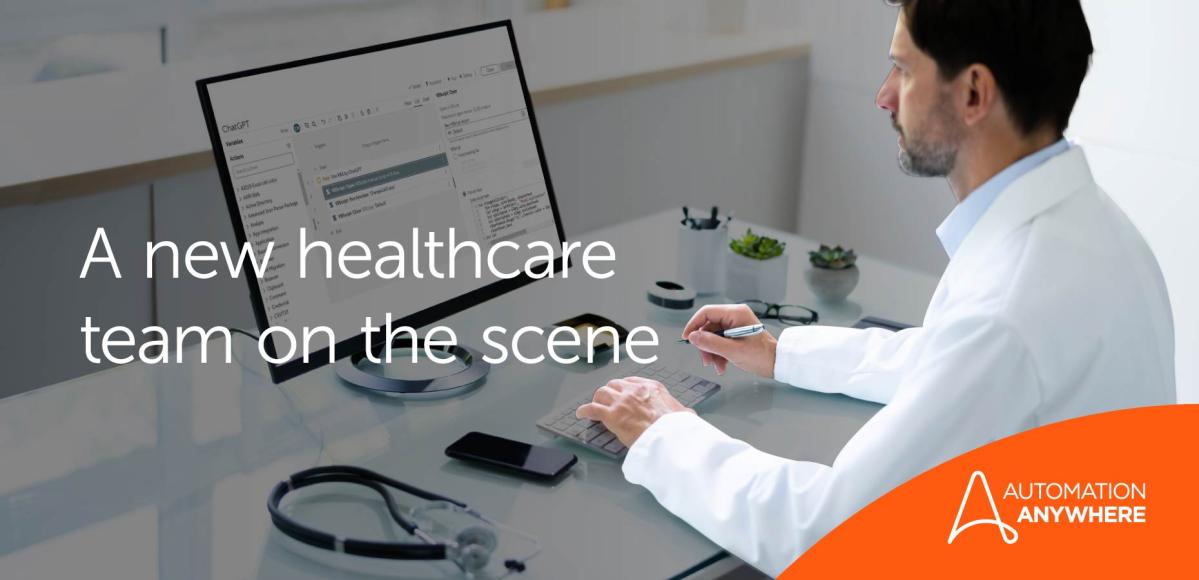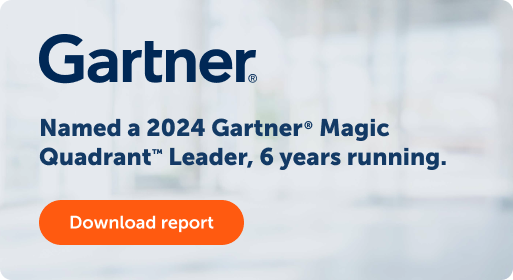- Products
Automate any process, anywhere Streamline complex, mission-critical workflows with the Agentic Process Automation System. Explore the Platform Explore the Platform
- AI System
- Build AI Agents
Automate advanced tasks with AI Agent Studio.
- Streamline workflows
Rapidly design and deploy with Automator AI.
- Process complex documents
Extract and organize data with Document Automation.
- Discover opportunities
Identify inefficiencies with Process Discovery.
- Orchestrate automations
Centralize initiatives with Automation Workspace.
- Build AI Agents
- Automation System
- Govern programs
Establish frameworks and oversight with CoE Manager.
- Automate from any app
Get AI-powered assistance with Automation Co-Pilot.
- Speed workflows with cloud
Power instant data exchange with serverless Automation Anywhere Cloud Service
- Unify systems
Connect applications and workflows with seamless integrations.
- Govern programs
- View all Products
-
- Solutions
Featured Solutions
 Google Cloud Google Cloud and Automation Anywhere empower enterprises to fast-track their AI + Automation journey. Google Cloud
Google Cloud Google Cloud and Automation Anywhere empower enterprises to fast-track their AI + Automation journey. Google Cloud Amazon Web Services Streamline workflows, reduce costs, and make automating even easier when you combine the Agentic Process Automation System with AWS Amazon Web Services
Amazon Web Services Streamline workflows, reduce costs, and make automating even easier when you combine the Agentic Process Automation System with AWS Amazon Web Services- By Industry
- By Function
- By Technology
- View all AI Solutions
-
- Resources
Get Community Edition: Start automating instantly with FREE access to full-featured automation with Cloud Community Edition.
Featured
 Named a 2024 Gartner® Magic Quadrant™ Leader for Automation. Celebrating Six Years of Recognition as a Leader. Download report Download report
Named a 2024 Gartner® Magic Quadrant™ Leader for Automation. Celebrating Six Years of Recognition as a Leader. Download report Download report - Customers
New & improved certifications
 Give yourself a competitive advantage with Automation Anywhere's industry-recognized certifications.Explore Certifications Explore Certifications
Give yourself a competitive advantage with Automation Anywhere's industry-recognized certifications.Explore Certifications Explore Certifications - Company
Get in touch with us Get help, know more, learn, ask questions, or just say Hi! Contact Us Contact Us
- Get To Know Us
- Announcements
- Society
-
Blog
ChatGPT and Intelligent Automation: Automating thought and action in healthcare

Launched in November 2022, ChatGPT is a pioneering AI-based large language model (LLM) developed by OpenAI that has the potential to revolutionize language creativity. One can ask ChatGPT to write an article, a poem, a research paper, or even software code. Within seconds, it will create a reasonable output albeit with some limitations such as a limited knowledge base after 2021 and occasional hallucinations (e.g., nonexistent literature references). The potential of generating natural human text without any effort has made ChatGPT the most hyped and fastest-growing software ever. Imagine using it to jumpstart your great American novel (good) or submitting homework essays to your teacher (questionable).
In healthcare, ChatGPT can work hand in hand with Intelligent Automation to streamline processes, reduce errors, and improve patient outcomes. How do they synergize? ChatGPT is the brain, and Intelligent Automation is the arms and legs. In this article, we will explore how ChatGPT can work with software automation to create a more efficient, effective, and sustainable healthcare system.
Data processing
Healthcare organizations generate and process vast amounts of data on a daily basis. This data includes patient information, medical histories, treatment plans, test results, and financial information, among other things. Managing this data flood can be a daunting task, and human errors can easily occur. With the help of ChatGPT, software automation in healthcare can be more accurate and efficient. ChatGPT's natural language processing (NLP) capabilities enable it to understand the meaning behind words and phrases. The ability to understand, classify, and contextualize unstructured text enables automated processes to achieve greater accuracy in retrieving, sorting, processing, storing, and reporting on data transactions.
Data entry
ChatGPT can be integrated into an electronic health record (EHR) system to humanize the data input process. EHRs typically require data to be typed in manually by healthcare providers, which can be time-consuming and prone to errors. With ChatGPT, providers can enter patient information using natural language, which the model will convert into structured data. The machine now understands the human, as opposed to the human having to translate for the machine. We’ve had speech recognition systems for a while, but ChatGPT’s answers go much deeper.
Clinical decision support
Another area where ChatGPT can be integrated into healthcare software automation is in the diagnosis and treatment of patients. The model can be trained on a vast amount of knowledge, enabling it to assist healthcare providers in making accurate diagnoses and treatment recommendations. The key word is “assist,” not “diagnose.” With more research and experience in the next few years, and if we can solve some of the current thorny issues, such as bias and nonexistent citations, it’s not unimaginable that ChatGPT could become a standard medical tool. Physicians and nurses have used clinical decision support tools over the years, but ChatGPT is the first to draw upon not only the world of research and medical consensus, but also the patient’s unique history and the much larger universe of nonmedical data, to generate insights. This can potentially reduce diagnostic delays, increase efficiency, and improve patient outcomes.
Patient instruction
ChatGPT can also be integrated into telemedicine systems and online resources to provide patients with technical support and access to medical information and advice. Telemedicine has become increasingly popular in recent years. By integrating ChatGPT into video chat and telemedicine systems, patients can ask questions about their health using natural language, and the model will respond in a human-like way while providing accurate and up-to-date information.
Patient engagement
Finally, ChatGPT can boost patient engagement. By leveraging its NLP capabilities and its limitless capacity for patience, a human-like chatbot or avatar can ask for information and help patients better understand their medical conditions, treatment plans, and health insurance. Anthropomorphism (ascribing human qualities to an AI) can build trust with patients as they seek answers to medical questions and validation on being proactive in their own care. This can improve patient satisfaction and medical outcomes, as patients are more likely to be compliant if they understand what they are doing and why. A side benefit is providers burned out by high demand may get some relief. For the health system, combining ChatGPT with automation will address sustainability and scalability, critical needs in the face of unpredictable demand and labor shortages.
Together, ChatGPT and Intelligent Automation have the potential to greatly improve how healthcare is delivered and how it is seen by patients. Automation represents a proven first step, but ChatGPT and other new AI models will help fill out the healthcare value chain for an industry seeking to reinvent itself in the midst of unprecedented disruption.
Take a Big Step Towards Healthcare Digital Transformation.
About Yan Chow

Dr. Yan Chow is a global healthcare industry leader and strategist for Automation Anywhere.
Subscribe via Email View All Posts LinkedInGet to know the Agentic Process Automation System.

For Students & Developers
Start automating instantly with FREE access to full-featured automation with Cloud Community Edition.



